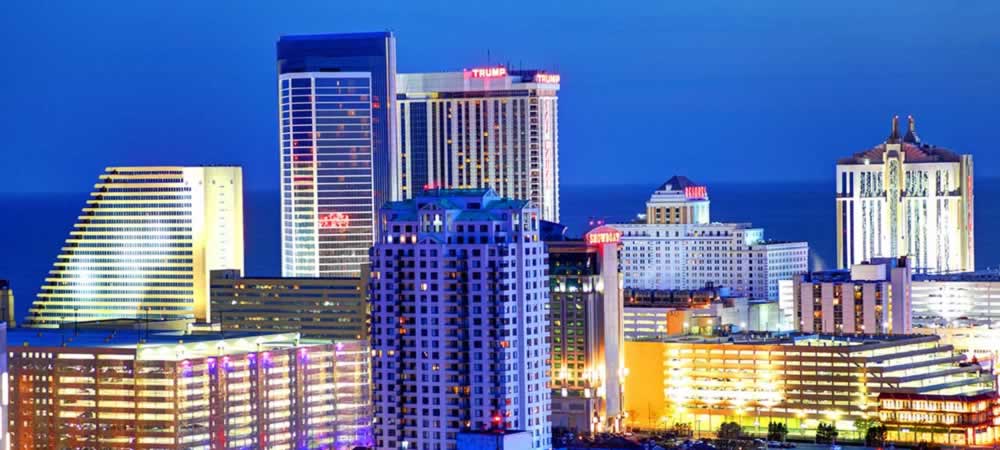- 80% of sports betting in New Jersey takes place over the Internet.
- Having a retail location is still viewed as game-changing in the grand scheme.
- For operators, there are numerous benefits to having physical venues alongside online betting services.
ATLANTIC CITY, N.J. – When it comes to New Jersey sports betting, online isn’t everything. It might be the preferred option for 80 percent of bettors, but there’s plenty of good reasons for books to diversify offline.
That might seem counterintuitive in today’s world where convenience is king. But in the context of casinos and crossover, a land-based tie-in is invaluable.
An operator limited to the Internet is going to do significantly less business than an operator who has both an online and an in-person presence.
New Jersey’s fledgling sports betting industry bears this out.
When New Jersey first legalized sports wagering, DraftKings immediately took over the lion’s share of the marketplace. The brand was the first company to host online sports betting in the state.
However, rival FanDuel had an ace up its sleeve: The Meadowlands.
By leveraging its local presence in East Rutherford, FanDuel has blown past DraftKings in both market share and revenue. FanDuel controls over 50 percent of the entire sports betting pie in New Jersey. DraftKings owns just 30 percent of the market.
Still, DraftKings does technically have a brick-and-mortar storefront in New Jersey at the Resorts Atlantic City (though its revenues are not tied to the brand’s online sportsbook earnings). Outside of that, the two venues don’t remotely compare.
FanDuel’s sports betting lounge is over 10,000 square feet and has over 100 HDTVs. There is a full restaurant at the venue, three bars to choose from, and a VIP area.
DraftKings’ sports betting lounge at the Resorts Atlantic City isn’t even half as large. It’s got a central bar, a sushi menu, and a video wall. It’s competent enough, but for anyone who’s been to both venues, the differences are staggering. It’s like the difference between AAA and Major League baseball.
Sports betting is no different from other businesses in this respect. Customers who are more likely to return to a given retail location are also more likely to use that location’s online component.
It’s for this reason that other New Jersey betting vendors are investing heavily in their physical sports betting lounges.
At Bally’s Atlantic City, Caesars is building New Jersey’s largest book. When completed, the Bally’s New Jersey sports betting lounge will be a 15,000-square-foot behemoth with a 100-foot video wall and an $11 million price tag.
Caesars Entertainment is also building a smaller book at Bally’s sister venue, Harrah’s. The Borgata is similarly investing $11 million into its new sports betting facility.
Why Online Sportsbooks Need Their Physical Counterparts
There are several reasons why online books do better when they operate in concert with physical books. The first and biggest reason, of course, is perceived legitimacy. If you have a big lounge in real life, customers will use your little app to bet from home.
A physical venue also makes advertising easier, particularly when it comes to membership perks and promos. For this, sports betting lounges are like promotional “gathering places”.
Another critical but often-overlooked element is crossover play. Sportsbooks are not usually entities in and of themselves. Instead, they are typically just another product on a larger casino floor.
If a casino limits its investment to an online experience (as DraftKings has effectively done at the Resorts AC), new customers will stay home. While this drives new revenue, it does not drive new revenue for any of the casino’s other offerings.
Most casinos view their sportsbooks and betting lounges as doors to their other products. If a non-regular shows up to check out the new lounge and make a sports bet, that customer might spend money at the venue’s bars or restaurants.
They might take their winnings to the gaming floor. They might play the slots. They might take in a card game or two.
Caesars regional president Kevin Ortzman explained the allure. He cites a 10-12 percent increase in casino business on major game days.
“What’s great about that is this is a new customer. Caesars and MGM have sportsbooks in Las Vegas, so we know how important it is to have an amenity to drive new business that we otherwise wouldn’t have.”
In reality, nearly every modern casino product is more profitable for the house than sports betting. This is why cross-play is so valuable for gambling operators.
A sportsbook’s biggest economic contributor isn’t the vigorish. It’s the vigor it imparts to the rest of the gambling venue.
Advertising Disclosure
In order to provide you with the best independent sports betting news and content LegalSportsBetting.com may receive a commission from partners when you make a purchase through a link on our site.
News tags: mobile | New Jersey

Andy has been writing professionally for nearly two decades, with the last three years being dedicated to his primary passions: sports wagering news and gambling industry analyses. A walk-on punter, Andy has a particular interest in professional football, baseball, and horse racing betting. Come early May, you can always catch Andy – clad in all white, mint julep in hand – on Millionaires Row at Churchill Downs. In his dreams.


 College Football Betting
College Football Betting Best Online Sports Betting
Best Online Sports Betting Best Legal NFL Betting
Best Legal NFL Betting States With Legal Sports Betting
States With Legal Sports Betting Sports Betting Events
Sports Betting Events




